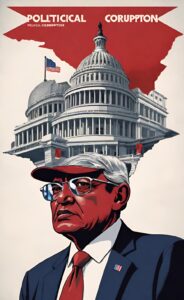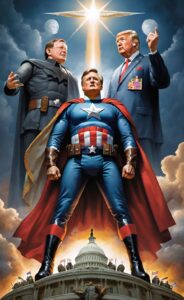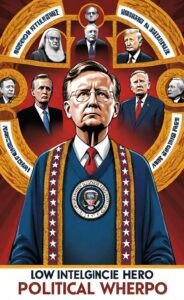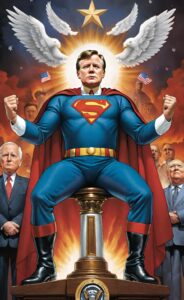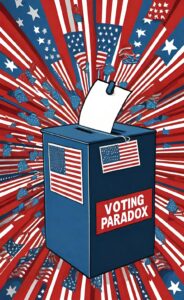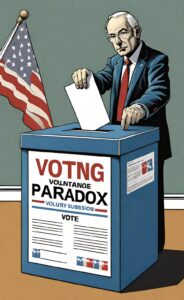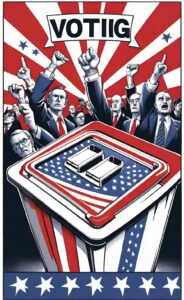In an era where multinational corporations wield unprecedented power, their influence over governmental policies and actions has become a pivotal topic of debate. This influence, while beneficial in terms of economic growth and job creation, also carries the potential for fostering state misconduct through corruption, policy manipulation, and undue leverage over political processes. The complex interplay between corporate interests and public governance raises critical questions about the integrity and efficacy of state functions in representing the public interest.
Power Dynamics Between Corporations and Governments
The interplay between corporate might and governmental authority is marked by significant power imbalances, fundamentally altering the landscape of public governance. Governments have the capability to legislate, regulate, and enforce laws across various sectors. Conversely, large corporations control immense economic resources, enabling them to wield considerable influence over governmental decisions and policies.
This dynamic often propels governments into positions where they are incentivized, whether through direct or indirect means, to prioritize the objectives of large corporations over the collective needs and welfare of the public. Such prioritization can manifest in regulatory decisions that favor profit maximization over crucial societal concerns, including environmental conservation, public health safety, and the protection of workers’ rights. This imbalance not only challenges the capacity of governments to act as impartial arbiters in the public interest but also raises concerns about the overall accountability of elected officials to their constituents.
The essence of this power struggle reveals the underlying tension in modern governance, the need to balance economic growth facilitated by corporate entities against the imperative to safeguard public welfare and maintain ethical governance practices. This complex relationship between corporate power and public policy underscores a broader debate on the role of government in an increasingly corporatized economy and the mechanisms through which public institutions can resist undue corporate influence to truly serve the public good.
Lobbying and the Manipulation of Policy-Making Processes
Lobbying serves as a direct channel through which corporations can influence legislative and regulatory frameworks to their advantage. By deploying lobbyists, businesses engage in dialogue with lawmakers, pressing for the advancement of laws and regulations that align with their strategic interests. This practice, while recognized as a standard component of the “democratic” system, edges into contentious territory when it disproportionately favors corporate ambitions at the expense of the general welfare.
The issue intensifies when the financial heft of large corporations translates into a dominating presence in lobbying efforts, overshadowing voices from civil society and smaller entities. This imbalance can distort the legislative process, prioritizing the desires of the economically powerful while sidelining critical societal needs such as consumer protection, environmental sustainability, and social equity. Moreover, the opacity often surrounding lobbying activities adds a layer of complexity, with the specific influences and outcomes of such engagements frequently remaining obscured from public scrutiny.
This lack of transparency not only challenges the accountability of public officials but also hampers the ability of citizens to fully understand the forces shaping the policies that govern their lives. As corporations continue to assert their presence in the halls of power, the task of ensuring that policy-making remains a balanced and inclusive process becomes increasingly critical, demanding vigilant oversight and robust mechanisms for public participation and accountability.
The Role of Campaign Finance in Corporate Influence
Campaign finance emerges as a potent tool for corporations seeking to mold politics to their benefit. Through substantial donations to political figures or backing political action committees (PACs), these entities carve pathways to favor with lawmakers, who may, in turn, advocate for policies that align with corporate agendas. This exchange disrupts the foundational democratic ethos, spotlighting a concerning shift where the allegiance of elected officials leans more towards their benefactors than to the electorate they represent.
The substantial flow of corporate capital into the political arena skews policy directions, potentially marginalizing the broader public interest in favor of corporate gains. This dynamic not only misshapes policy decisions, reflecting a bias towards the interests of the financially influential, but it also erodes the fabric of public trust in governance. Citizens, witnessing the sway that monetary contributions have over policy and political loyalty, might grow increasingly skeptical of the authenticity behind political actions and decisions.
The implications of such financial involvement are profound, touching on the essence of integrity and challenging the notion that governance is primarily for the people. In navigating these waters, the pressing concern becomes how to realign the focus of elected officials with the public welfare, ensuring that governance is not swayed unduly by the financial might of corporations but is instead responsive and accountable to the needs and aspirations of the citizenry at large.
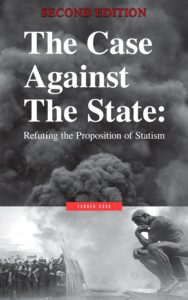
> Check Current Book Prices <
Collusion in Contracts and Public Procurement
The unethical practice of collusion in the awarding of public contracts stands as a glaring example of corporate influence gone awry, leading to a gross misallocation of taxpayer funds. This malpractice is often characterized by non-competitive bidding processes, tailored contract specifications to unfairly benefit specific corporations, and inflated charges for products and services rendered to the government.
Such actions not only squander public resources but also erode the integrity and fairness of the procurement process, leaving smaller entities at a significant disadvantage. This creates a cycle where only a few large corporations are consistently awarded government contracts, thereby reinforcing their market dominance and entrenching their influence within the public sector. The repercussions of these practices extend beyond financial waste, as they compromise the principles of fairness and competition that are fundamental to a healthy market economy.
By sidelining merit-based considerations and transparency, the collusion between corporations and government officials distorts the very framework meant to ensure that public contracts are awarded in the best interest of the populace. This undermines public trust in government operations and perpetuates a system where the allocation of public funds is not guided by the pursuit of quality and efficiency but by the interests of a privileged few.



The Revolving Door Phenomenon and Its Implications
The revolving door phenomenon represents a complex challenge in the interface between corporate interests and public governance. This cycle occurs when individuals frequently transition between significant roles in the private sector and positions within the government, creating a seamless pathway for the exchange of influence and priorities. The implications of this phenomenon are multifaceted, introducing a potential for conflict of interest that undermines the integrity of public decision-making.
Former government officials, equipped with insider knowledge and a network of contacts, may exploit these assets to benefit corporate agendas when they enter the private sector. Their understanding of regulatory processes and access to key policymakers provide a strategic advantage to corporations looking to navigate laws and regulations in their favor.
Similarly, when individuals from the corporate world assume public office, they may carry with them a mindset and loyalty skewed towards business interests. This predisposition can color their approach to policymaking, regulation, and enforcement, potentially prioritizing economic gains over public welfare and environmental sustainability. The revolving door blurs the boundaries between serving the public interest and advancing corporate profitability, raising questions about the impartiality of policies and regulations.
The movement of personnel between these spheres can foster an environment where the formulation and implementation of public policy are unduly influenced by the aspirations of the business sector, sidelining broader societal needs and concerns. This entanglement complicates efforts to ensure that public governance remains focused on equitable and sustainable development for all citizens, free from disproportionate corporate sway.
Hidden Cost of Corporate-Funded Research and Think Tanks
The funding of research institutions and think tanks by corporations introduces a subtle yet potent form of influence on public policy and societal perceptions. This financial support, while ostensibly for the advancement of knowledge, often comes with strings attached, leading to outcomes that can skew research findings in favor of the benefactors’ interests.
The implications of this dynamic are profound, as it covertly shifts the landscape of public discourse and policy-making. Research and reports emanating from such institutions may present a veneer of objectivity, yet underneath, they could be framing issues in ways that deflect criticism from corporate practices or amplify the positives of corporate-led initiatives.
This situation raises significant concerns about the integrity of scholarly work and the independence of think tanks, entities that society relies on for impartial insights into complex issues. When the production of knowledge is tethered to corporate interests, the public and policymakers might not be receiving a full and fair account of matters affecting societal well-being. Instead, they are presented with a narrative that subtly molds public opinion and policy landscapes to align with corporate agendas.
The hidden cost here is not just in the potentially biased information that shapes laws and public policies but also in the erosion of trust in academic and research institutions. As these bodies play a crucial role in informing both public debate and policy decisions, their compromise threatens the foundation of informed democratic discourse and governance, undermining the pursuit of policies that genuinely serve the public interest and safeguard the common good.


